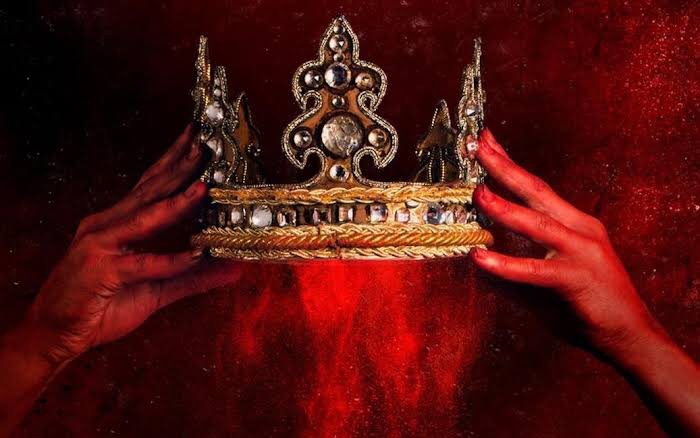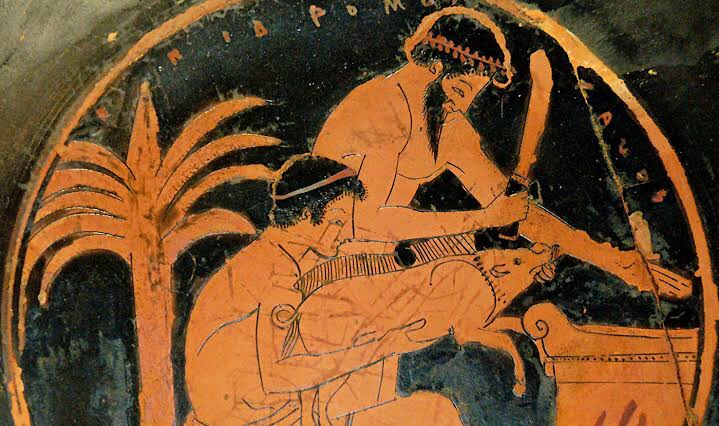Greek mythology can be just an imagination that continuously floats inside my mind. But in Hesiod’s Theogony, he fathoms into more concrete reality the imaginations inside my head. He does not only narrate how the complex world of gods come into life, but he expressed certain truths about the gods that are undeniably peculiar but relevant in this modern time.
As I read through Hesiod’s Theogony, I am very much interested on these two parts and how they represent certain realities existing in this modern time.
Cronos swallowing his children

Grotesque. Immoral. Think of other insults that would satisfy your disgust about Cronos swallowing his own children.
But this part in Hesiod’s Theogony, can be seen through another lens. Even though it was exaggeratedly depicted, one hardcore truth remains in this part of Theogony and even in this modern time: the hunger for power can live within us all.
Power is a force that needs an object: To have power, a person has to have it over something, or someone (Beck, 2011). According to psychologists, one of the main problems with authority is that it makes us less sympathetic to the concerns and emotions of others (Lehrer, 2010).
Cronos was desperate for power and it was unfortunate that swallowing your own children is pretty normal at his time. In this modern time, the pursuit for power is not new. Individuals who do not perceive control over their environments may seek to gain control in any way possible, potentially engaging in maladaptive behaviors (Leotti, Iyengar, & Ochsner, 2010). Even in simple situations (group projects, discussions, decision making, etc.), we aspire to be in control and sometimes we put forth desperate measures to make it happen.
Men who sacrifices and prays to Hecate

Hesiod depicted that Hecate is worshipped because she has the privileges of the gods and she grants prayers.
“Pray to Hecate and the booming Earthshaker,
And the goddess easily sends a big catch their way,
Or removes one in sight, as she wills in her heart.”
Hesiod, 443-445
The concept of men worshipping the gods is entirely depicted in Greek mythology. However, to be specific, I want to highlight how men worship Hecate for their needs.
Men offer sacrifices and mutter prayers to Hecate for the purpose of gaining her favor and granting their prayers. This concept is very much related to Filipino idolatry. Most Filipinos try to justify their sufferings by clinging to a divine being. They believe that this divine being would grant their prayers and in some cases, elevate them from the cages of poverty.

The Black Nazarene is an ebony statue of Jesus Christ brought to the Philippines in 1606, and is believed to have miraculous powers (Taylor, 2018). Devotees kiss or rub their handkerchiefs on the statue and they join the procession in the streets, barefoot.
This one example shows how Filipino are very much inclined to relate their sufferings and aspirations to a divine being.
According to Jocano (1967), the ability to establish a relationship with God acquires added and favorable dimensions if prayers are first addressed to intermediaries than directly to the Almighty. Jocano also states that this amplifies tha a belief that God is too removed from worldly affairs to take any specific interest in men but saints are “almost human,” they are close to the world. It will always be a part of Filipino culture to worship who they perceive as “divine beings” other than God. In some cases, these beings serve as their only hope in the broken system they belong to.
Mythology is commonly defined as a narrative that tries to explain certain phenomena. Therefore, in Hesiod’s Theogony, I searched for truths that I believe are happening in this modern time. In this way, I am more inclined with Greek mythology for it gives me reasons behind certain realities that I have been a part of for years.
References:
Hesiod (1800). Theogony. Retrieved from https://www.theoi.com/Text/HesiodTheogony.html?fbclid=IwAR1yK6WF8K-XdObcg042vs_cAiNzqbk4dbimc5jGt0GA1374Yy177ONGJAo
Beck, J. (2016). People want power because they want autonomy. Retrieved from https://www.google.com.ph/amp/s/amp.theatlantic.com/amp/article/474669/
Lehrer, J. (2010). The Psychology of Power. Retrieved from https://www.wired.com/2010/08/the-psychology-of-power/amp
Taylor, A. (2018). The 2018 Procession of the Black Nazarene. Retrieved from https://amp.theatlantic.com/amp/photo/550094/
Jocano, F.L. (1967). Filipino Catholicism: A Case Study in Religious Change. Retrieved from https://www.asj.upd.edu.ph/mediabox/archive/ASJ_55_2019/05_Filipino_Catholocism_Case_Study_Religious_Change.pdf
Leotti, L., Iyengar, S., & Ochsner, K. (2010). Born to Choose: The Origins and Value of the Need for Control. Trends in Cognitive Sciences, 14-10, 457-463. DOI: 10.1016/j.tics.2010.08.001